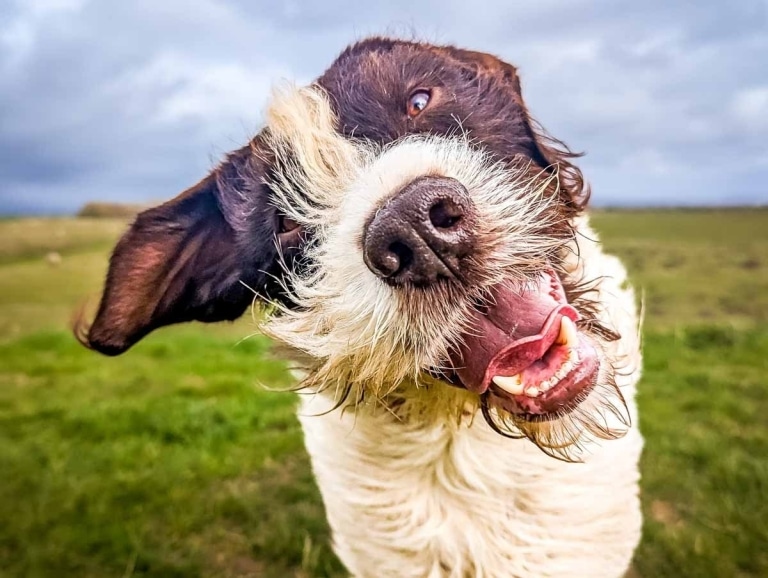A dog’s name is the first step toward building mutual understanding between you and your pet. It helps identify the animal, forms associations that influence behavior, and makes communication easier. Just like people, dogs get used to how they are called and respond accordingly, so the name should be comfortable for both sides. A well-chosen name makes training commands easier, builds trust, and strengthens the emotional bond.
A name serves as a signal that defines moments of interaction. When you call your dog, it understands that you are addressing it and responds accordingly. A name can create positive associations when used in pleasant situations such as playtime or feeding. Additionally, it can reflect your dog’s personality, uniqueness, or even its breed.
In this article, you will learn how to choose a dog name that is practical and enjoyable to use, along with ideas for different breeds, personalities, and appearances. We will also explore how to properly train your dog to recognize and respond to its name quickly and happily.

Criteria for Choosing a Name
Ease of Use. A dog’s name should be short and clear, as you will be saying it multiple times a day. The best choices are names with one or two syllables, such as “Max,” “Bella,” or “Rex.” Short names are easier for dogs to remember and associate with their identity. Avoid long and complicated names that may be inconvenient for everyday use. For instance, instead of “Aristocrat,” a shorter version like “Aris” would be more practical.
Sound Impact. Dogs respond best to names containing strong consonants like “r,” “s,” and “t,” as well as vowels like “a,” “o,” and “i.” Names such as “Rex,” “Tosha,” or “Sky” have sounds that easily capture attention. Sibilant sounds, as in “Sherry” or “Chica,” are also well perceived by dogs since they are distinct to their hearing. Avoid names with sounds that may blend into background noise.
Reflection of Characteristics. When choosing a name, consider the dog’s personality and appearance. If your dog is energetic, dynamic names like “Spark,” “Flash,” or “Blaze” may suit them. Calm and composed dogs may carry names like “Lord,” “Santi,” or “Peace.” Playful and cheerful pets are well-matched with names like “Bimbo,” “Jolly,” or “Chip.” Coat color can also be an inspiration—white dogs are often called “Snow” or “Ice,” black ones “Knight” or “Charm,” and red-coated dogs “Sunny” or “Amber.”
Uniqueness. Your dog’s name should stand out while still being easy to understand. Common names like “Fluffy” or “Ginger” are cute, but if you want something more unique, try less conventional options like “Caramel” or “Archie.” Avoid overly complicated or obscure names like “Extravagand,” as they may confuse the dog rather than help it recognize its name.

Classification of Dog Names
Names by Gender
Female dog names are often soft, melodic, and reflect grace and femininity. They can be simple and universal, like Bella, Luna, Molly, or Leila, or unique and slightly exotic, like Amelie, Zara, or Chantal. These names are great for gentle-natured dogs or breeds known for their elegance, such as poodles or setters.
For male dogs, names are often chosen to emphasize strength, courage, or energy. Popular choices include Rex, Max, Thor, Butch, and Archie. If you’re looking for something more original, consider names like Grey, Lord, Ajax, or Rocky. Large breeds look even more majestic with powerful-sounding names like Baron or Zeus.
Names by Breed
For small breeds like Yorkshire Terriers or Chihuahuas, owners often choose playful or cute names such as Pups, Mimi, Chip, or Fifi, which highlight their tiny size and curious nature. Large dogs, such as Labradors or German Shepherds, usually receive strong, noble-sounding names like Grey, Baron, Zeus, or Ice. Medium-sized dogs, like Cocker Spaniels or Border Collies, suit more versatile names such as Timmy, Mars, Daisy, or Ted.
Certain breeds have “traditional” names:
- Huskies: Ice, Polaris, Alaska.
- Poodles: Fifi, Lulu, Charlie.
- Pugs: Bucks, Rudy, Charlie.
Names by Personality
If your dog is energetic and active, choose names that reflect movement: Spark, Flash, Bolt, or Dash. These names suit high-energy dogs like Jack Russell Terriers or Border Collies.
For calm and balanced dogs, such as Labradors or Saint Bernards, names like Lord, Peace, Santi, or Harmony are perfect, evoking confidence and stability.
If your pet is playful and mischievous, fun names like Chip, Fizz, Bimbo, or Joker will fit well.
Names with Meaning
Names with significance add uniqueness and character. For example:
- Luna symbolizes calmness and mystery.
- Ray means “king” or “ray of light.”
- Greta translates to “pearl” in German.
- Zara means “flower” in Arabic culture.
For owners who want to highlight their dog’s nobility, these names work well:
- Ariel – strength and nobility.
- Ajax – mighty warrior.
- Selene – moonlight.
Choosing a meaningful name can make it even more special if it reflects not only the dog’s appearance but also its personality.
How NOT to Name Your Dog
1️⃣ Overly long names. While they may look interesting on paper, they are impractical in real life. Dogs struggle to recognize long words and will likely respond only to the first few syllables.
2️⃣ Names that sound like commands. For example, “Sid” may confuse a dog because it sounds like the command “sit.”
3️⃣ Human names. Choosing a dog’s name that matches a friend’s or family member’s name can create awkward situations. For instance, naming your dog “Oleg” when you have a friend with the same name might be considered inappropriate or even offensive.

Tips for Dog Owners
How to Teach Your Dog Its Name?
Getting a dog used to its name is an important process that requires patience and consistency.
✔ Start with positive associations. Use the dog’s name in pleasant situations like feeding, giving treats, or playing. Always say the name in a friendly, warm tone: “Rex, time to eat!” or “Luna, let’s play!” This helps the dog associate its name with good experiences.
✔ Repetition is key. Use the name often when addressing your dog, but don’t overdo it—if the name is repeated too much without meaning, the dog may start ignoring it.
✔ Pair the name with commands. Say things like “Rex, come!” or “Lord, sit!” to help the dog link its name to actions.
✔ Avoid yelling the name. Even if your dog misbehaves, shouting can create fear and break trust.
✔ Train in a distraction-free environment. Start in a quiet place with no distractions. Once your dog responds confidently, practice in more challenging settings like parks or around other animals.
What If Your Dog Doesn’t Respond to Its Name?
If your dog ignores its name, first ensure there are no hearing issues. Test its response to sounds like clapping or a toy noise. If hearing is fine, the problem may be with the name itself.
🔹 Try shortening or modifying the name. If your dog doesn’t respond to “Aristocrat,” try “Aris.”
🔹 Use treats or toys for motivation. Call the dog’s name, show a treat, and reward any positive reaction. Gradually reduce treat frequency while reinforcing a positive connection to the name.
🔹 Check your tone. Dogs are highly sensitive to emotions. If you say the name sharply or monotonously, the dog may not recognize it as an address. Use a warm and inviting tone.
🔹 If the problem persists, consult a trainer. Some dogs require a customized training approach.
Conclusion
A dog’s name should be simple, clear, and reflective of its unique personality. The right name will help your dog quickly learn to respond to commands and make daily interactions smoother. Choose a name that brings you joy, makes you smile, and perfectly represents your pet’s character. Above all, love and respect for your dog matter most—the name is just one part of this wonderful bond.










